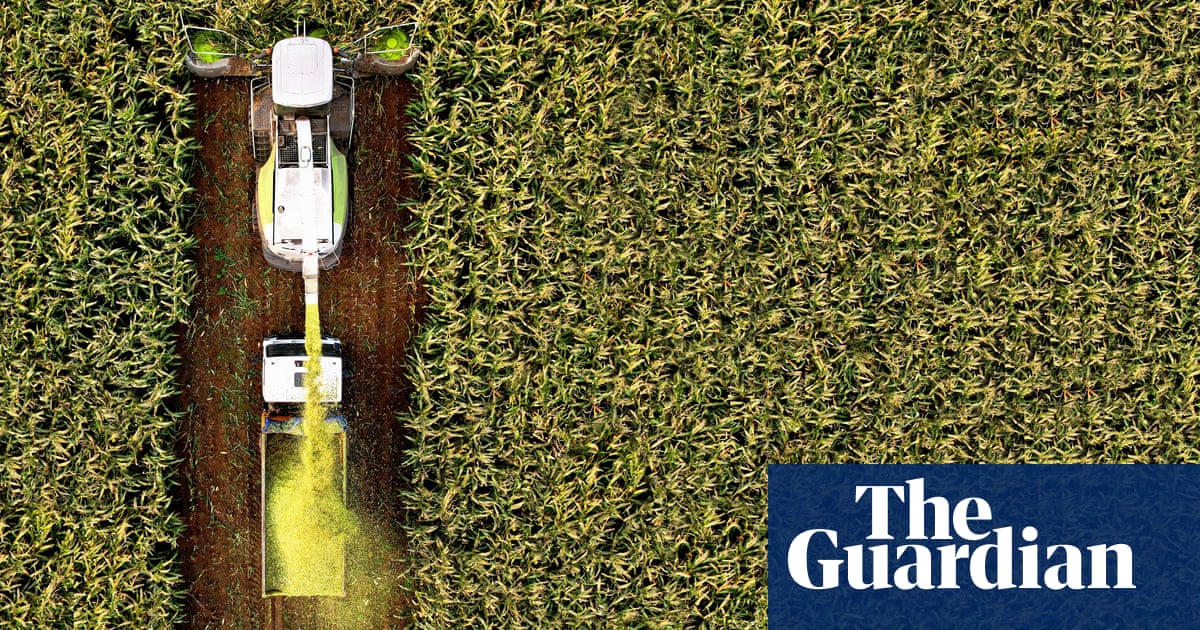Some of our critical staple crops could suffer “substantial” production losses due to climate breakdown, astudyhas found, even if farmers adapt to worsening weather.
Rice, maize, soy, wheat, cassava and sorghum yields are all projected to fall by as much as 120 calories per person per day for every 1C the planet heats up, according to new research in Nature, with average daily losses that could add up to the equivalent of not having breakfast.
The study found rising incomes and changes in farming practices could stem the losses by about a quarter by 2050 and by one-third by 2100 – though they would not stop them entirely.
“In a high-warming future, we’re still seeing caloric productivity losses in the order of 25% at global scale,” said Andrew Hultgren, an environmental economist at the University of Illinois Urbana-Champaign and lead author of the study. “It’s not as bad as a future where adaptation doesn’t happen at all, but it’s not this rosy ‘agriculture is going to benefit from climate change’ kind of picture.”
Farmers are among those hardest-hit by extreme weather events, but scientists have struggled to quantify what climate breakdown will do to food production. A major source of uncertainty is the extent to which farmers will adapt to hotter temperatures by changing which crops they use, when they plant and harvest them, and how they grow them.
The team of researchers from the US and China used data from 12,658 regions across 54 countries to capture the extent to which food producers have adapted to different changes in the climate. They applied these historical relations to models simulating future crop production as temperatures rise and economies grow, and compared the losses to a hypothetical world in which global heating stopped in the early 2000s.
In an extreme heating scenario, the study found, the relative yield for a crop such as soy would fall by 26% by 2100, even after accounting for adaptation, rising incomes and the effect of plants growing faster due to extra carbon dioxide in the atmosphere.
A more realistic heating scenario – closer to the level that current policies will cause – would lead to yield losses of 16% for soy, 7.7% for wheat and 8.3% for corn, the study found. Rice is the only one of the six crops the researchers studied for which yields would rise because of climate change, with an expected gain of 4.9%.
The global population is projected to rise from about 8 million today to 10 million by the end of the century, increasing demand for food as carbon pollution warps weather patterns. The researchers found the greatest losses would hit modern-day breadbaskets with highly productive lands, but added that people in poorer countries would be among the ones least able to afford food.
“In a lot of climate impact studies, the global poor get hurt, and that’s true here too,” said Hultgren. “What is different from a lot of the previous work out there is that relatively rich, well-to-do portions of the world that are bread baskets are actually hit the hardest.”
The research, which uses econometric methods to gauge the total effect of adapting, contrasts with previous studies that explicitly model biophysical interactions. Astudyin Nature Communications in 2022 using the latter approach found timely adaptation of growing periods would increase actual crop yields by 12%.
Sign up toDown to Earth
The planet's most important stories. Get all the week's environment news - the good, the bad and the essential
after newsletter promotion
Jonas Jägermeyr, a researcher at Columbia Climate School and co-author of the study, said the new research did not cover adaptation options that are not implemented today and that its results were likely to be pessimistic.
“Empirical impact studies are known to be overly pessimistic when it comes to far-into-the-future scenarios,” he said. “Process-based models show the importance of plant growth interactions that cannot be empirically trained on historical data.”
But such models have also been criticised for exploring what is theoretically possible without reflecting real-world constraints, such as market failures, human error and the availability of funds.
“The findings [of the new study] are reasonable but represent one end of a legitimate scientific debate,” said Ehsan Eyshi Rezaei, a crop scientist at the Leibniz Centre for Agricultural Landscape Research.
He added: “I view these results as a valuable empirical reality check showing we cannot assume perfect adaptation will save us – even if the truth likely lies between their pessimistic projections and [other researchers’] optimistic ones.”
